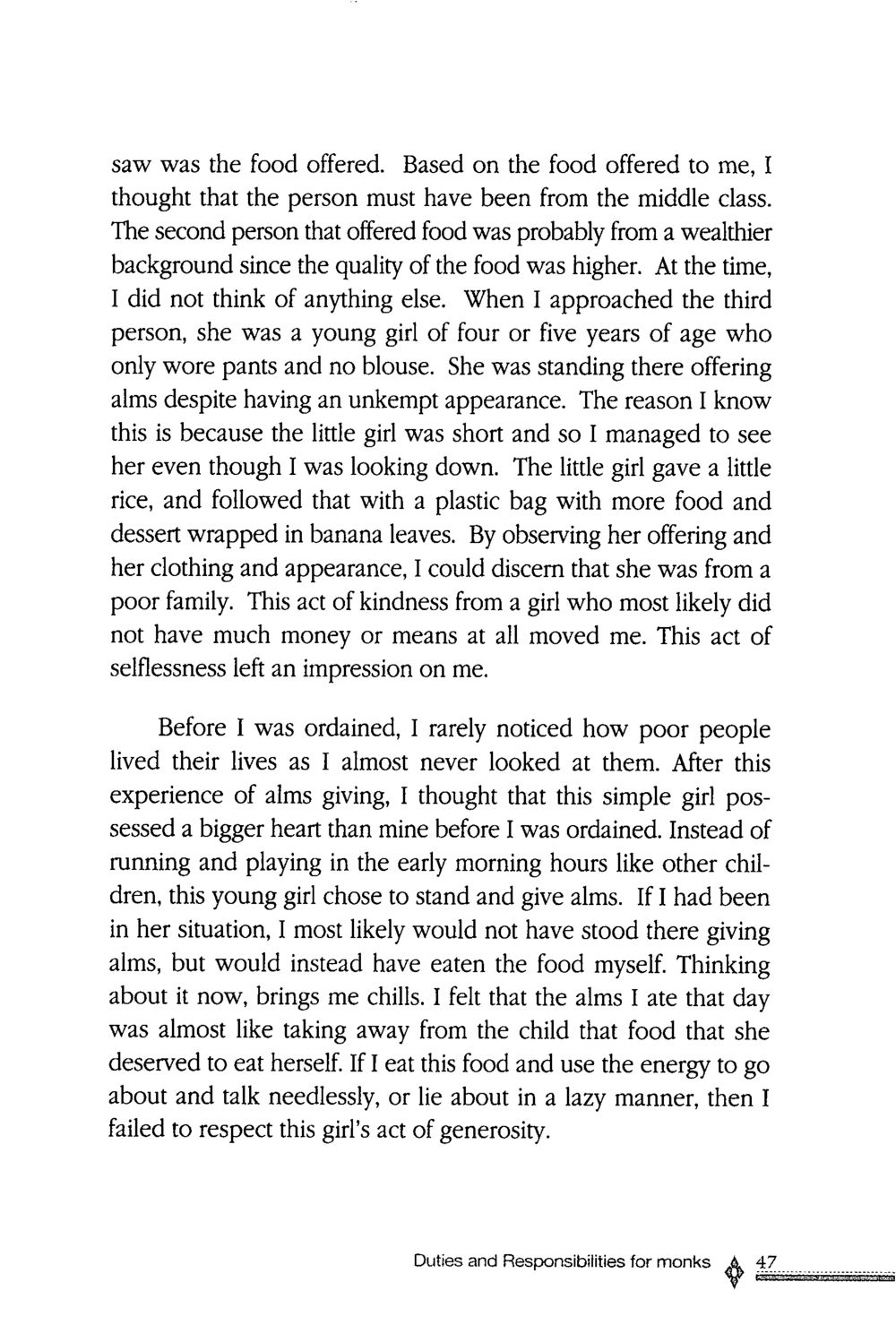The Lessons of Almsgiving and Selflessness : หน้า 48/105
The ordination : หน้า 48/105 A reflection on the profound lessons learned from observing almsgiving, emphasizing kindness and awareness of poverty.
2 ครั้ง

สรุปเนื้อหา
This narrative explores the author's deep insights gained from witnessing three acts of almsgiving, particularly focusing on a young girl from a poor background. The contrasting offerings of food highlight social disparities, yet it is the selfless act of the girl that profoundly moves the author. He reflects on his lack of awareness towards the poor before his ordination and contrasts his past selfishness with the girl's generosity. This experience serves as a heartfelt reminder of the importance of compassion and empathy towards those in need. It challenges the notion of what it means to give and highlights the moral responsibility to honor the kindness of others.
หัวข้อประเด็น
-Understanding Almsgiving
-Social Class and Generosity
-Poverty Observations
-Childhood Innocence and Kindness
-Reflections on Selflessness









































































































